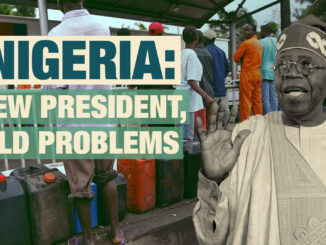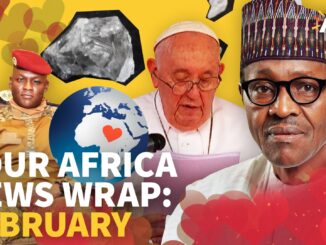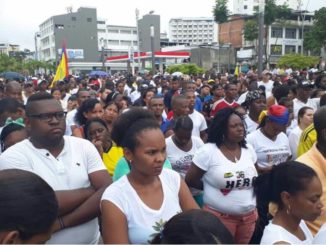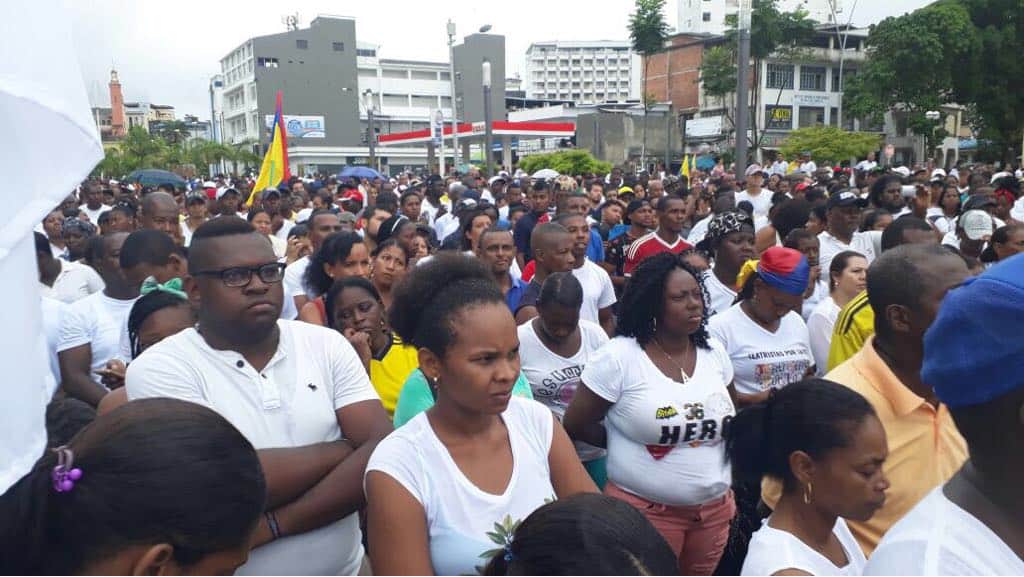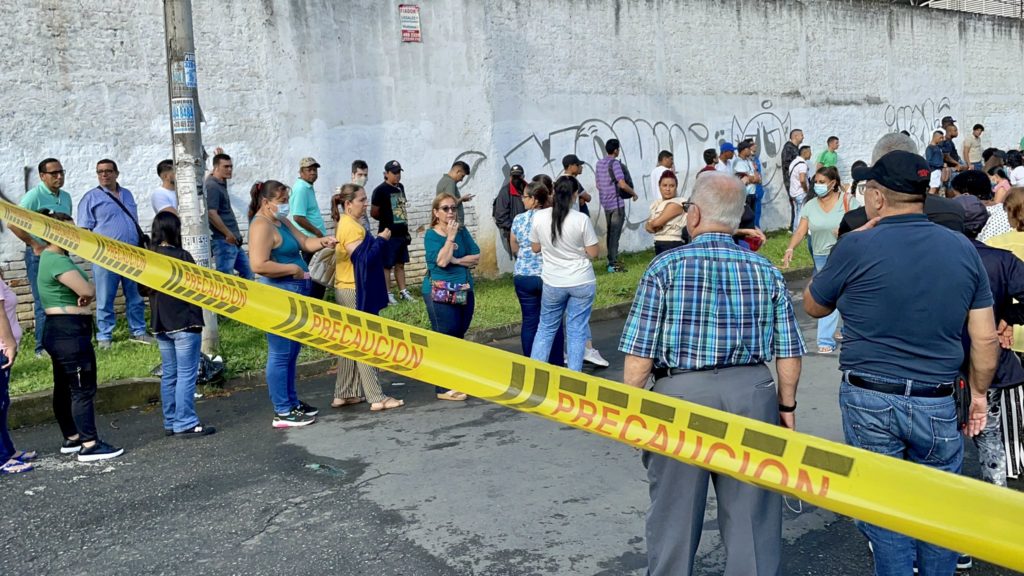
CALÍ, Colombia—Former militant-turned-politician Gustavo Petro had sharp words for his flashy millionaire opponent, who is thought to have won votes among the Colombian youth because of his presence on a social media platform.
“You can’t combat corruption with phrases on TikTok,” Petro told a crowd on Sunday night in Bogotá. He referred to Rodolfo Hernández, 77, who ran his campaign on ending corruption based on his success in the construction industry.
During Sunday’s first round of the presidential election, Petro did not garner the 50 percent needed to avoid a second round on June 19. He won 40 percent of votes while Hernández received 28 percent. The first round attracted 47 percent of the country’s 39 million registered voters.

Hernández, who ran on the League of Anti-Corruption Governors ticket, has been compared to former U.S. President Donald Trump and former Italian Prime Minister Silvio Berlusconi, both known for sex scandals and off-the-cuff remarks. However, what might help Hernández win the presidency is an alliance of right-wing and center-right candidates who had run in the first round. Competitors like right-wing Team for Colombia coalition candidate Federíco Gutiérrez and center-right-wing Hope Center coalition candidate Sergio Fajardo announced their support for Hernández in their concession speeches Sunday night.
Ajamu Baraka, an advisor to Francia Márquez, Petro’s vice-presidential running mate, said right-wing forces combined with systematic voter suppression through violence and intimidation will make it difficult for the Pacto Histórico ticket to pull off a win.
“Turnout is going to be key, but as we saw yesterday, there are areas where paramilitary forces intentionally prevented communities from voting,” he said. “Communities that—if they voted—they would have voted for the Historic Pact.”
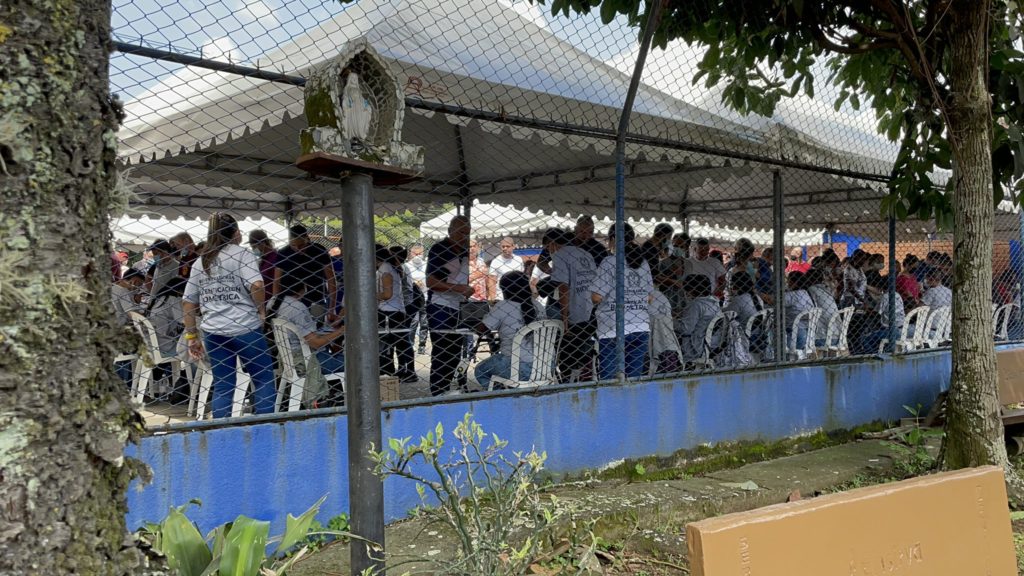
AfroResistance, a group that advocates for Afro-descendant women and girls in the Americas, helped organize a 29-woman election observer delegation, the largest group of observers in the history of Colombia’s elections organized through Misión de Observación Electoral (Electoral Observation Mission). Half of the group observed the process in Calí, while the other half monitored in the predominantly Afro-descendant port city of Buenaventura.
Election observers founded irregularities in Buenaventura, where a 2017 civil strike shut down the country’s main port on the Pacific Ocean for 22 days.
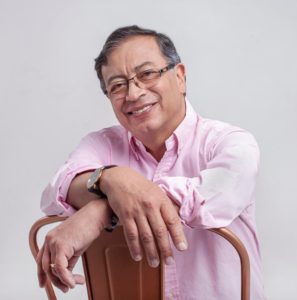
Representatives from Pacto Histórico—the left-wing coalition Petro ran his campaign through—were kidnapped and disappeared from the polling site after the group of observers left. Parties were permitted to keep party observers at each voting station. After consulting with a Buenaventura-based observer, the observers decided to not return to the site to inquire. Election officials were not immediately available to comment to Toward Freedom.
Buenaventura is known for “chop houses,” buildings where paramilitaries have been known to cut adversaries’ bodies alive as a warning to others. Paramilitaries in Colombia have guarded for years the production and flow of drugs out of the country. Meanwhile, the United States has for 22 years poured $4.5 billion in the form of military training and arms into Colombia.
Voting appears to go smoothly in another voting station in Calí. Local activist Charo Mina Rojas (@renacientes) says many more people are voting, but fear of the repercussions for expressing opinions have kept campaign signage on cars and buildings to a minimum. #ColombiaDecide pic.twitter.com/Vf9ULHIcrm
— Toward Freedom (@TowardFreedom) May 29, 2022
Jemima Pierre, an AfroResistance delegation observer who represented the Black Alliance for Peace as the organization’s Haiti/Americas Coordinator, said polling stations in Calí were categorized on a range of one to six, with six representing the most affluent neighborhoods. She and her group of observers were assigned to visit polling stations that ranged between three and six. They noticed the more affluent neighborhoods contained biometric machines that checked voter identification cards.
“It seemed to me there was a correlation between class, color, access,” she said.
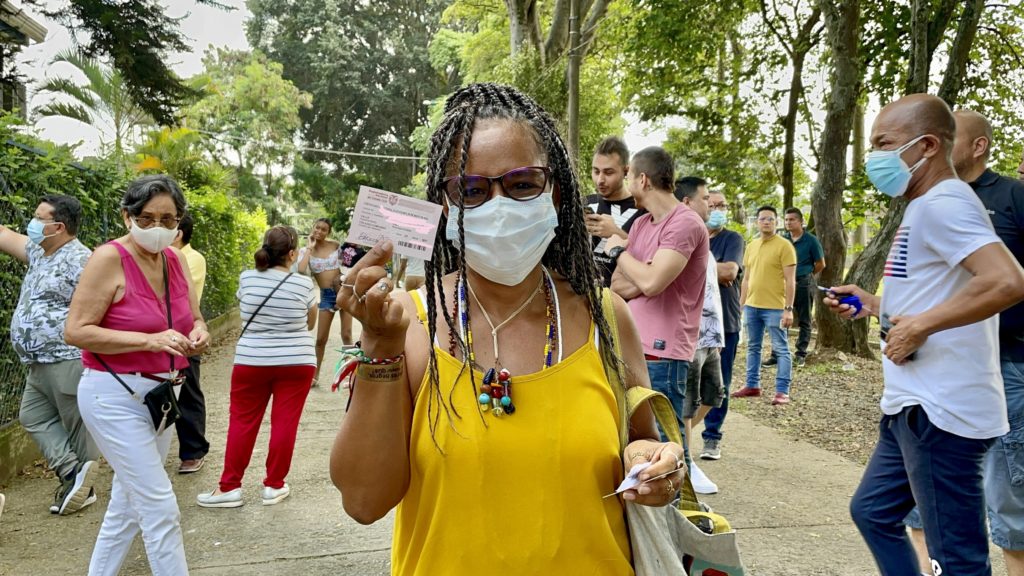
Charo Mina Rojas, a member of Proceso de Comunidades Negras, an alliance of Afro-descendant organizations in Colombia, said it’s normal for people to post signs of campaigns they support on their cars and homes. This year was different, though.
“It’s a lot more low-profile, low-key this time,” she said, adding she hadn’t heard people openly speaking about for whom they are voting. “It’s hard to know. I think some people feel afraid of saying who they are voting for because it’s so contested and kind of dangerous for some of us.”
Indeed, many voters declined to speak with this reporter outside a poll in Calí, citing their fear.
“People may be voting for a change, but keeping it quiet to keep safe,” Mina said after voting at a poll in Calí.
But some voters were happy to share their perspectives with Toward Freedom.
“[Change] depends on us. We have to stop what’s been happening for years,” said Jaime Rodriguez, 69, commenting on decades of paramilitary violence tied to the Colombian elites and U.S. control of the state. That’s why he said he voted for Petro. “The government meddles everywhere.”
Margarita Ramirez, a retired marketing firm researcher who spent her career traveling through urban and remote areas of the country, told Toward Freedom she voted for Petro.
“The situation of the people in the city is very different from the situation in the rural areas,” she said, describing her travels to Amazonian areas like Arauca, where she witnessed a mother with no food to feed her children breakfast. The World Bank states 35 percent of Colombians live in poverty. Only 69 percent of Colombians eat three meals per day. “Those people do not have access to electricity, to water, to education, to food. There is no dignity.”
Meanwhile, in the cities, house maids can work upwards of 13 hours a day, leaving their children to fend for themselves, said Ramirez, 59.
“Why don’t those people help those people’s children have access to shoes, to education?” she asked. “It’s time for a change.”
Julie Varughese is editor of Toward Freedom. She recently reported on Colombia’s presidential elections here and here.

